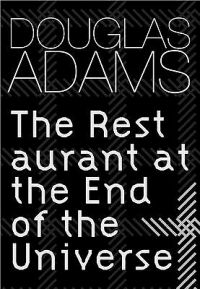In which hitchhikers are advised to hide in the bushes until the car has passed.

I enjoyed Simpson’s biography of Douglas Adams, entitled Hitchhiker, however, unless you’re a die-hard fan who needs to read everything by and about DNA my advice to you would be to pass it by. Though well-researched and reasonably (though definitely not brilliantly) written, the book focuses rather more on the «negative» aspects of Adams’ career than on the positive. No-one who waited 10 years for the promised next novel (known for most of that decade as Salmon of Doubt, not to be confused with the collection of odd bits and pieces published under that name) can be unaware of Adams’ inability to meet deadlines. Simpson, rightly, you could argue, spends quite a bit of energy on this subject – so much so that it becomes rather tiresome, and he completely fails to see the funny side of this trait (or if he sees the funny side, he fails to convey it). He also spends rather a lot of time retelling some of the good stories Adams told, and then saying «However, that’s not stricktly true.» This also gets quite repetitive, and though the thorough examination of the embelishments and results of faulty memory is no doubt excellent scholarship, I’m not sure I really care (at least not quite so many pages’ worth).
However, I mostly enjoyed it. I did not, however, enjoy the last chapter. Simpson seems intent on convincing his readers that Adams’ heart attack happened because he was fundamentally unhappy – all because the H2G2 film again seemed to have sunk into the Hollywood quagmire. Not only does this seem somewhat unreasonable to me – here’s a man with a wife and daughter and a happy family life, with millions of fans worldwide, with major successes behind him and the safe knowledge that if someone locks him in a hotel room for an adequate number of weeks he will quite definitely produce another blockbuster (he could write, he just had to be forced to sit down and do it) and I could go on and on – and even if Simpson is right, I would just much rather not know, thank you very much. I am still upset about Adams’ untimely death, I do not need to be further upset by the thought that he was miserable when he died.
All in all, you’d be much better off reading Neil Gaiman’s biography.


